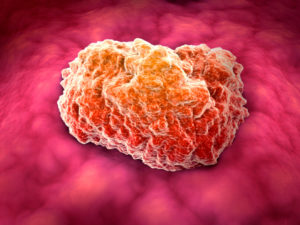Over 20% of RhD-negative non-oncology patients exposed to RhD-positive red blood cells (RBCs) become alloimmunized to the RhD antigen. In oncology patients, however, the rate of alloimmunization is much lower because cancer patients are often immunosuppressed. Since the availability of RhD-negative RBCs is limited, researchers retrospectively investigated 4295 transfusions of RhD-positive RBCs that occurred in 545 Rh-negative oncology patients over four years. The overall incidence of RhD sensitization was 14% (76/545) as measured at least 28 days after the first transfusion. Independent of age, race, and the number of RBC units transfused, the rate of alloimmunization was higher in oncology patients with solid cancers (22.6%; p=0.007) or myelodysplastic syndrome (23.3%; p=0.03) compared to those with other hematologic syndromes (6.6%). A better understanding of RhD alloimmunization is needed to help develop strategies to better utilize RhD-negative RBCs.
Reference:

